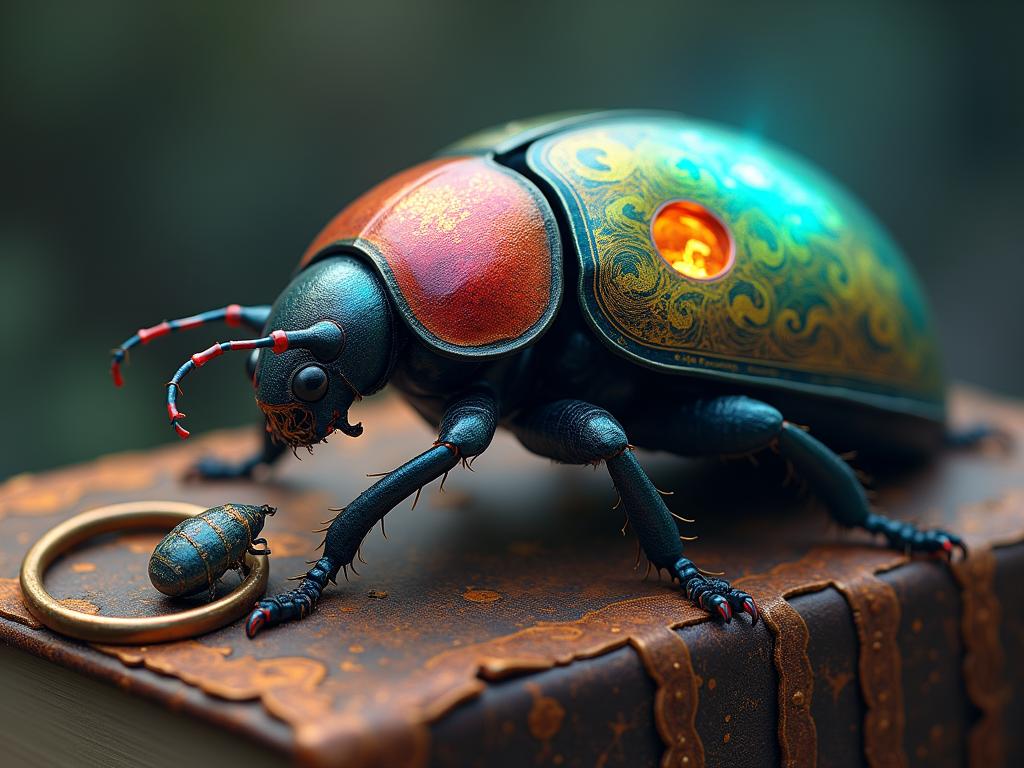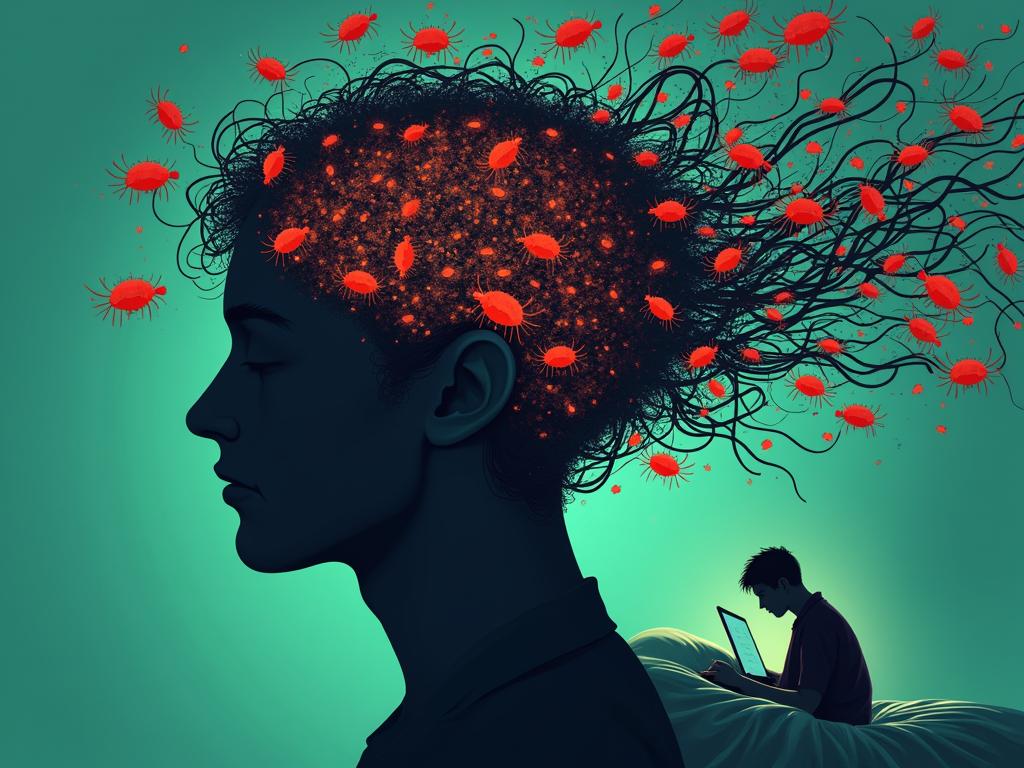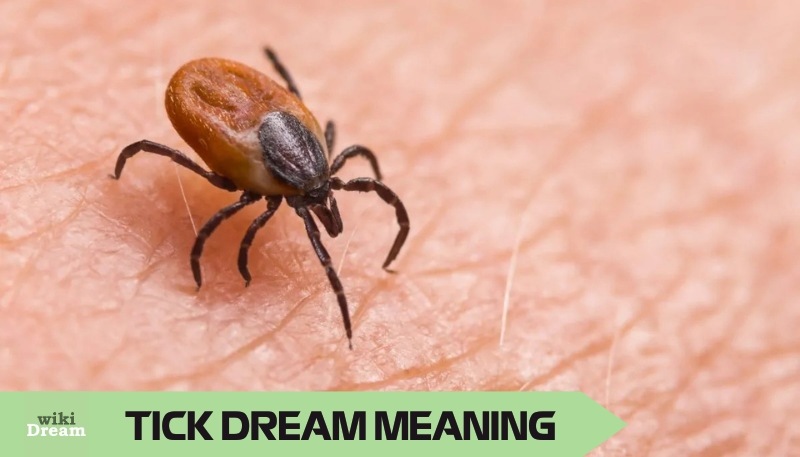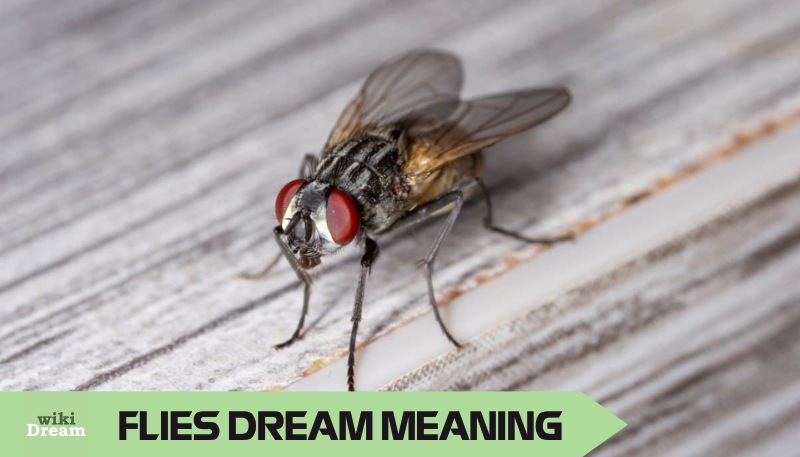Have you ever woken up disturbed by the image of maggots writhing in your dreams? These unsettling visions often leave us questioning their deeper meaning. What could your subconscious be trying to communicate through such a visceral symbol?
Understanding Common Dream Scenarios with Maggots
Dreams featuring maggots typically represent decay, transformation, or unresolved issues festering beneath the surface. These dream symbols can be powerful messengers from our subconscious, revealing what needs attention in our waking lives. The specific context in which maggots appear provides crucial clues to their meaning.

What do maggots in dreams typically symbolize?
Maggots in dreams commonly symbolize feelings of decay, corruption, or something negative consuming you from within. In psychological terms, they often represent aspects of yourself or your life that feel tainted or in need of cleansing. However, it's important to note that maggots are also natural decomposers—they break down what is no longer needed to make way for new growth, suggesting potential for transformation and renewal.
How do different locations of maggots affect interpretation?
The location where maggots appear in your dream significantly influences its interpretation. Each setting carries unique psychological and symbolic implications that provide insight into specific areas of concern in your life.
| Location | Primary Interpretation | Secondary Meaning |
|---|---|---|
| Body | Issues with self-image or health concerns | Need for physical or emotional healing |
| Food | Corruption of nourishment or values | Questioning what "feeds" you emotionally |
| Home | Family issues or problems in your safe space | Need to cleanse your environment |
| Mouth | Communication problems or speaking untruth | Things left unsaid that need expression |
| Wound | Unhealed trauma or emotional pain | The healing process has begun but isn't complete |
Different cultural backgrounds may assign varying significance to these locations, making personal context essential for accurate interpretation.
Why do recurring maggot dreams happen?
Recurring maggot dreams typically occur when you haven't addressed or resolved the underlying issue they represent. The subconscious mind continues to present the same disturbing imagery until you acknowledge and process what it's trying to communicate. These persistent dreams often intensify in frequency or vividness when the associated issue becomes more urgent or impactful in your waking life.
Your mind may be highlighting patterns of behavior or thought that require transformation, especially if you're resisting necessary change. In some cases, these dreams may diminish once you begin to actively work on the issues they symbolize, serving as a kind of progress marker for your psychological journey.
What cultural interpretations exist across different societies?
Cultural interpretations of maggot dreams vary widely across different societies, reflecting diverse historical and spiritual traditions. Ancient Egyptian culture viewed maggots as symbols of rebirth and transformation, while many Asian traditions associate them with the concept of impermanence and natural cycles of decay and renewal.
Western interpretations often lean toward negative associations with corruption and moral decay, influenced by Judeo-Christian symbolism. Indigenous cultures frequently view maggot dreams as messages from ancestors or spirits about purification needs. Some African traditions interpret these dreams as signs of spiritual attack requiring ritual cleansing.
- Hinduism: May represent karma being worked out through difficulty
- Buddhism: Often seen as reminders of impermanence and attachment
- Native American: Could signify the need for a cleansing ceremony
- Celtic: Sometimes associated with the goddess Morrígan and transformation
- Modern psychology: Viewed as expressions of anxiety or fear of contamination
The cultural lens through which we view our dreams significantly shapes how we process and integrate their meanings. Let's now explore the psychological aspects that might be at work beneath these unsettling dream images.
Psychological and Emotional Significance
Maggot dreams reflect deep psychological processes involving our fears, anxieties, and transformative potential. These dreams operate at the intersection of consciousness and unconsciousness, revealing emotions and thoughts we may not fully acknowledge while awake. Understanding their psychological significance can help us navigate our inner landscape more effectively.
What unresolved issues might maggots represent?
Maggots in dreams often symbolize unresolved emotional issues that continue to fester beneath your conscious awareness. These may include lingering guilt over past actions, resentment toward others that you haven't addressed, or shame about aspects of yourself you've tried to hide. The appearance of maggots suggests these issues are actively decomposing your emotional well-being and require attention.
Dreams featuring maggots can also point to toxic relationships or situations you've been tolerating despite their negative impact. In Jungian psychology, such dreams might represent your "shadow" aspects—the parts of yourself you reject or deny—demanding integration for psychological wholeness.
How does the dreamer's reaction impact meaning?
Your emotional reaction within the dream provides crucial context for interpretation and often reveals your true relationship to the underlying issue. The intensity and nature of your response act as a barometer for how you're handling similar situations in waking life.
If you respond with extreme disgust or horror in the dream, you may be rejecting or denying aspects of yourself or your life that need attention. Conversely, if you observe the maggots with curiosity or acceptance, this might indicate readiness to embrace transformation. Dreams where you attempt to clean or remove maggots often reflect conscious efforts to address problems, while dreams where you feel paralyzed or unable to act may signal feeling overwhelmed by your circumstances.
| Reaction | Potential Meaning | Psychological Insight |
|---|---|---|
| Disgust | Rejection of unpleasant realities | Avoidance behavior |
| Fascination | Readiness for change | Beginning of integration |
| Fear | Anxiety about confronting issues | Need for support |
| Indifference | Emotional numbing or denial | Protective mechanism |
| Cleaning/removing | Active problem-solving | Healing in progress |
How did you feel during your maggot dream? The answer might reveal more than the dream's content itself.
When do maggot dreams indicate transformation?
Maggot dreams signal transformation when they occur during major life transitions or periods of personal growth. Despite their unsettling nature, these dreams can represent the natural decomposition of outdated beliefs, relationships, or identities making way for renewal. In nature, maggots break down dead matter to create fertile ground for new life—similarly, these dreams may appear when old aspects of yourself are dying to make room for new development.
The transformative aspect is particularly evident when the dream narrative shows progression: maggots evolving into flies (completion of a difficult process), decreasing in number (issues resolving), or appearing in conjunction with symbols of growth like plants or new structures. Dr. James Hillman's work on archetypal psychology suggests that embracing these disturbing images rather than rejecting them can facilitate profound psychological transformation.
What role does anxiety play in maggot dreams?
Anxiety frequently acts as both a trigger for maggot dreams and a component of their symbolic meaning. These dreams often emerge during periods of heightened stress, uncertainty, or when facing situations that make you feel vulnerable or out of control. The maggots themselves may represent the anxiety "eating away" at your peace of mind.
Research from the Journal of Sleep Medicine indicates that anxiety-related dreams commonly feature themes of contamination or invasion, with maggots serving as a potent symbol for these concerns. The relationship works both ways—anxiety can trigger these dreams, and these dreams can exacerbate anxiety if left unprocessed.
- Health anxiety often manifests as maggots in or on the body
- Social anxiety may appear as maggots in public settings
- Performance anxiety might show up as maggots interfering with tasks
- Relationship anxiety could present as maggots between you and loved ones
- Existential anxiety sometimes appears as widespread maggot infestations
These uncomfortable dreams invite us to develop practical strategies for integration and healing, which we'll explore in our next section.
Practical Steps for Dream Integration
Dream integration transforms disturbing maggot dreams into valuable personal insights and opportunities for growth. This process involves acknowledging, analyzing, and actively working with dream content rather than dismissing or suppressing it. With the right approach, even the most unsettling dreams can become catalysts for positive change.
How can you journal about maggot dreams effectively?
Effective dream journaling for maggot dreams requires capturing both the concrete details and your emotional responses to them. Begin by recording the dream immediately upon waking, noting specific details about the maggots' appearance, location, and behavior, as well as any other significant elements in the dream landscape. Pay particular attention to your emotions during the dream and upon waking, as these provide crucial context for interpretation.
Create a structured format that encourages deeper reflection by including sections for associations (what the symbols remind you of), parallels to current life situations, and potential messages. At Wiki Dream, I've found that maintaining a dream journal over time reveals patterns that might not be apparent from a single dream, allowing you to track how maggot imagery evolves as you address the underlying issues.
What spiritual cleansing practices are recommended?
Spiritual cleansing practices offer symbolic ways to process and release the negative energies associated with maggot dreams. These rituals create psychological closure while honoring the transformative potential these dreams contain.
Many traditions incorporate elements like water, fire, air, and earth in their cleansing practices, each offering unique benefits for processing disturbing dream content. Choose approaches that resonate with your personal beliefs and cultural background.
| Cleansing Practice | Method | Symbolic Meaning |
|---|---|---|
| Smoke cleansing | Burning sage, palo santo, or incense | Purification through air element |
| Salt baths | Soaking with sea salt or Epsom salt | Emotional purification through water |
| Meditation | Visualization of light dissolving negativity | Mental purification through focus |
| Sound healing | Using bells, singing bowls, or chanting | Vibrational clearing of energetic blocks |
| Nature immersion | Spending time in forests or near water | Reconnection with natural cycles |
Remember that these practices work primarily through psychological symbolism and ritual significance rather than any magical effect. Their power lies in providing concrete actions that help your mind process and release disturbing dream content.
How to distinguish warning signs from transformation symbols?
Distinguishing between warning signs and transformation symbols in maggot dreams requires careful attention to context and emotional resonance. Warning dreams typically feel urgent, create strong negative emotions, and often contain specific details that correspond to waking life situations requiring attention. These dreams may recur with increasing intensity until the issue is addressed, serving as your mind's attempt to highlight problems you've been ignoring.
Transformation dreams, while still potentially disturbing, often contain elements of change, progression, or unexpected positive aspects alongside the maggot imagery. These dreams might include symbols of renewal (like plants growing from decay) or show a process completing itself. The emotional tone may include curiosity, acceptance, or even relief mixed with the initial disgust.
- Warning signs often include clearly identifiable threats or dangers
- Transformation symbols typically show processes of change or cycle completion
- Warning dreams create persistent unease that doesn't diminish upon waking
- Transformation dreams may leave you feeling contemplative rather than fearful
- Warning signs tend to be specific, while transformation symbols are more archetypal
How does your maggot dream make you feel once fully awake and reflective? The lasting impression often reveals its true nature.
What therapeutic approaches help process these dreams?
Therapeutic approaches for processing maggot dreams range from self-guided practices to professional interventions. Cognitive-behavioral techniques help reframe the disturbing imagery and examine the thoughts and beliefs underlying your reaction to it. This approach is particularly effective for dreams triggered by anxiety or phobias, creating distance between the symbol and your emotional response.
Depth psychology approaches, including Jungian analysis, view these dreams as communications from the unconscious requiring integration rather than elimination. These methods focus on dialoguing with dream images, exploring personal and collective symbolism, and finding meaning in even the most disturbing content. Art therapy offers nonverbal ways to process dream imagery, allowing you to externalize and transform the maggot symbols through creative expression.
Professional dream work with a qualified therapist may be beneficial if maggot dreams are recurrent, extremely disturbing, or connected to trauma. Whatever approach you choose, the goal is not to eliminate these dreams but to understand their message and utilize their transformative potential.
Conclusion
Dreams of maggots, while disturbing, offer valuable insights into our psyche's depths and the transformation processes unfolding within us. What messages might your maggot dreams be conveying about areas in your life ready for renewal? Share your dream experiences in the comments—your story could help others understand their own dream journeys.







